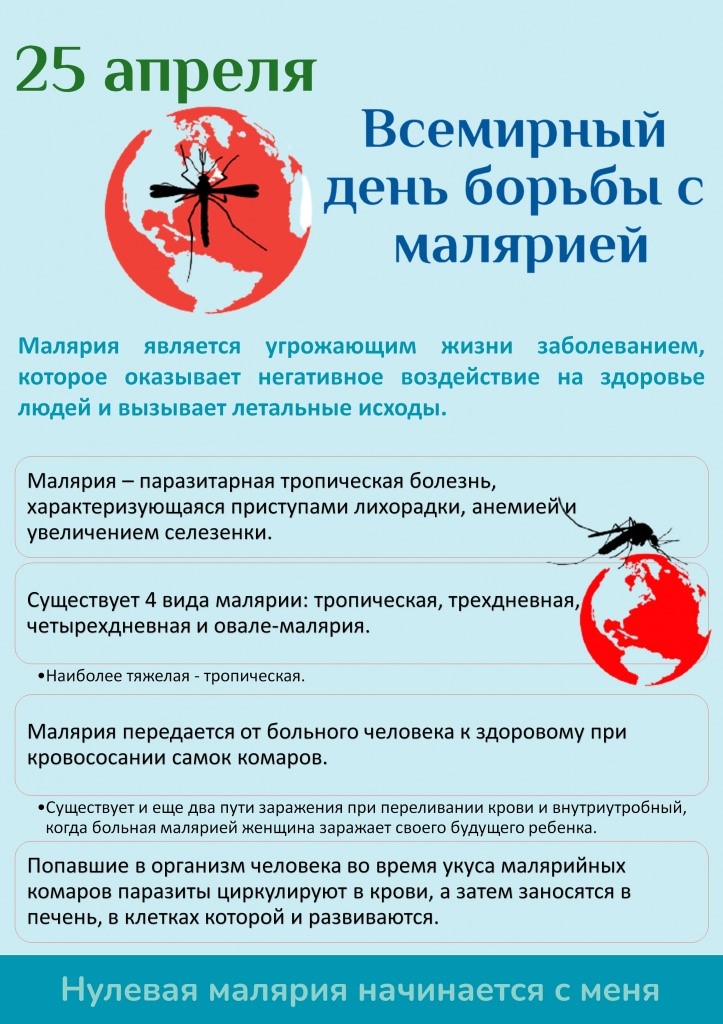25th of April United Day against Malaria

Prevention of malaria infection includes two areas: prevention of infection and prevention of the disease.
Prevention of infection is protection from the penetration of carriers ( screening windows) and protection from their bites (protection with gauze curtains, destruction of mosquitoes with insecticidal agents using electrofumigators , and outdoor treatment of open areas of the body with repellents).
The leading place in the fight against malaria is occupied by measures to combat vectors (malaria mosquitoes).
Modern vector control activities are based on an integrated system of mosquito control measures, including:
- study of malaria mosquitoes (species composition, biology, ecology of distribution, abundance, epidemiological significance);
- measures aimed at creating unfavorable conditions for the breeding and reproduction of malaria mosquitoes, including sanitary and hydraulic measures, agricultural technology, land reclamation;
- extermination measures (use of chemical, biological and physical methods to eliminate vectors);
- group and individual protection measures, including the use of personal protective equipment, protection of premises, canopies, nets, protective clothing.
Disease prevention is used when visiting malaria-prone regions. The basis of prevention is the use of antimalarial drugs, which begin a week before departure and continue throughout the entire period of stay in malaria-prone regions and for another month after return.
Antimalarial drugs must be prescribed by a doctor. Within three years after staying in a country unaffected by malaria, if the temperature rises, it is recommended to warn the doctor about your stay in an endemic country in order to conduct laboratory blood tests and establish an early diagnosis.





































